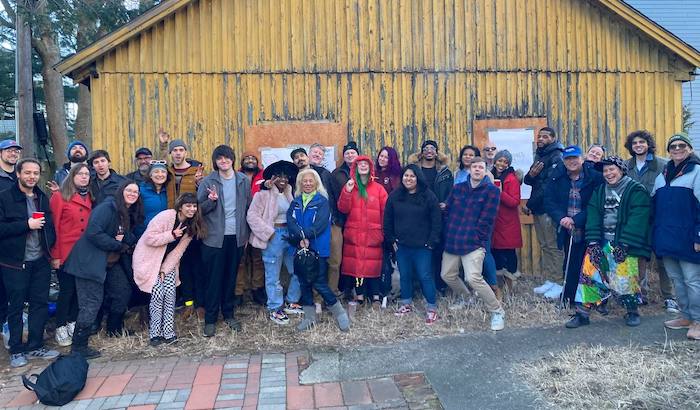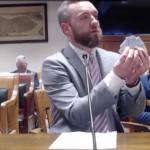
Legislation to decriminalize personal possession amounts of all controlled substances in favor of a health review for individuals who are in critical need
Ed. Note: While Talking Joints Memo is focused on cannabis culture and products, we also see that psychedelics are the next theater in the war to end the War on Drugs. The movement is very much underway already, as the volunteer network Bay Staters for Natural Medicine (BSNM) has successfully pushed efforts to decriminalize psychedelic plants in Somerville, Cambridge, Easthampton, and Northampton, with various similar efforts underway elsewhere. BSNM currently has three pieces of legislation filed in the Massachusetts legislature, and to help walk readers through them we asked the group’s board to summarize them in brief. This is the second post outlining their efforts on Beacon Hill.
Bay Staters for Natural Medicine, a grassroots community group with more than 2,000 volunteers across New England, filed three pieces of legislation to comprehensively end Massachusetts’ War on Drugs.
The all-volunteer organization, composed of over a dozen local groups, has worked with six city councils in Massachusetts to pass measures to deprioritize psychedelic plants and arrests for possession of all controlled substances.
These bills represent the most expansive model to improve access to care with psychedelic plants and a least punitive model for treating all substance use as an issue of public health yet filed anywhere in the United States.
HD. 2741 An Act Relative to Harm Reduction & Racial Justice
Going further than any state legislation on the issue to date, this legislation will decriminalize personal possession amounts of all controlled substances in favor of a health review for individuals who are in critical need and suffering with a substance use issue. Bay Staters for Natural Medicine and its coalition partnered with Rep. Mike Connolly and Rep. Sam Montaño to ensure this bill was re-filed correctly this session. In contrast to Oregon’s Measure 110, this law would not create any fines. This models the policies of Portugal by offering a public health screening to people in need without any punishment.
A previous version of this legislation last session would have modeled these fines, yet luckily the Bay Staters coalition was able to get this new version filed without them. Creating fines for substance possession could ironically increase enforcement and police interactions because it creates a revenue stream for local and state governments at a time when police departments are already unofficially deprioritizing enforcement, particularly in the cities where Bay Staters has partnered with the city council. Fines also send the message that addiction issues are something to be punished, rather than treated just as a public health issue.
This change was only possible because individuals working for Tapestry, the WPI Democrats, the state and local libertarian parties, Healthy Streets Outreach Program, and the state’s Harm Reduction Advisory Council shared common sense criticisms of fines with Senator Cyr. Advocates had been working for well over a year to have fines removed, yet had been largely ignored by lawmakers to the detriment of passing the best possible policy for the Commonwealth.
Ultimately, this legislation is critical to changing the paradigm around substance use, and it will have substantial benefits for community relations between police and the communities they serve. A public records request by Bay Staters found a two to one racial disparity in substance possession arrests in Boston, and many officers have long noted the tendency for these arrests to be concentrated in historically segregated neighborhoods owing to the higher density of patrol officers to address crime.

























